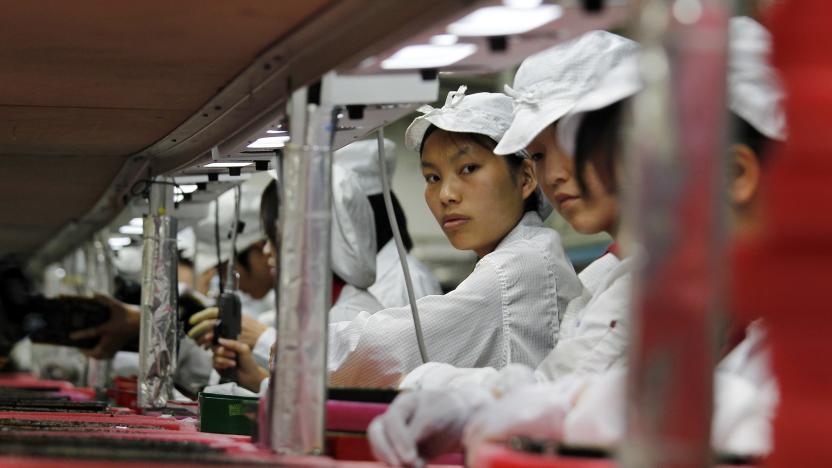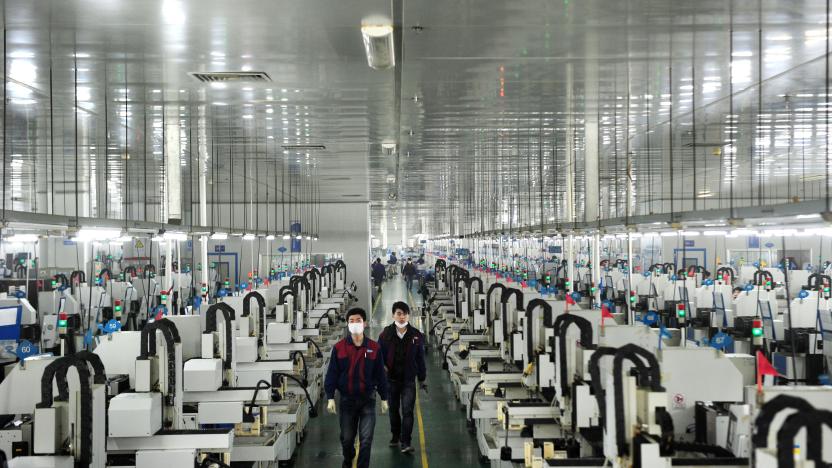forced labor
Latest

Apple reportedly took years to drop a supplier that used underage labor
In 2013, Apple found that one of its suppliers, Suyin Electronics, had employed underage workers, and yet it took another three years before it finally cut ties.

Apple, Amazon and Tesla supplier accused of using forced labor
According to an investigation by The Washington Post and the Tech Transparency Project, companies including Apple, Amazon and Tesla are sourcing parts from a Chinese supplier that allegedly uses forced Muslim labor. The Tech Transparency Project found documents detailing how Lens Technology uses “thousands of Uyghur workers from the predominantly Muslim region of Xinjiang” in its factories. The Post describes Lens Technology as a long-time, major partner of Apple, with a history going back to the “early days” of iPhone production.

Chinese prisoners forced to farm MMOs for cash
Doing hard time in China may result in more than just back-breaking labor -- you may be called upon to join the country's growing legion of gold farmers as well. A report at Guardian.co.uk exposed an unusual side of Chinese prisons, painting a picture of gaming inmates who had to meet farming quotas in MMOs or be beaten. One prisoner said that this practice was more lucrative for the prisons than other products of forced labor: "Prison bosses made more money forcing inmates to play games than they do forcing people to do manual labour. There were 300 prisoners forced to play games. We worked 12-hour shifts in the camp. I heard them say they could earn 5,000-6,000rmb [£470-570] a day. We didn't see any of the money. The computers were never turned off. If I couldn't complete my work quota, they would punish me physically. They would make me stand with my hands raised in the air and after I returned to my dormitory they would beat me with plastic pipes. We kept playing until we could barely see things." However, prison officials denied that such activities took place. One official commented, "We do not allow our prisoners to have any contact with the outside world. If they were playing these online games they could easily communicate with other people. We would never allow that." Billions in revenue have resulted from China's virtual gold trade, which is largely unregulated. Guardian.co.uk estimates that the country holds 80% of the world's gold farming population.

Chinese prisoners forced to produce virtual gold, real profits for their guards
The virtual goods economy of massively multiplayer online games may be thriving, but it's also stimulating an undesirable side-effect: exploitation. A former detainee at a prison in Heilongjiang province, China, has told the Guardian about how he was habitually forced into playing MMOs like World of Warcraft for the collection of loot, which the prison guards would then resell online for as much as ¥6,000 ($924) per day. Such totals would be the product of up to 300 inmates working 12-hour daily shifts, though predictably they saw none of the profits themselves. The unnamed source was at a "re-education through labor" camp where the usual toil would involve actual, rather than virtual, mining. The profitability of the online market has seemingly inspired prison bosses to move with the times, however, with business being so brisk that the computers "were never turned off." A Chinese government edict from 2009 is supposed to have introduced a requirement that online currencies only be traded by licensed entities, but it's believed that the practice of using prisoners in this fashion continues unabated.


